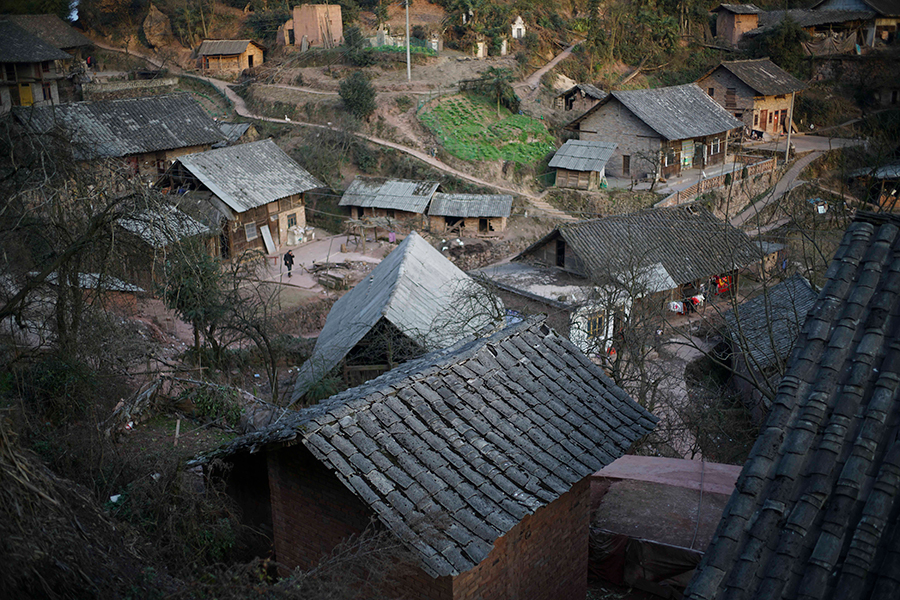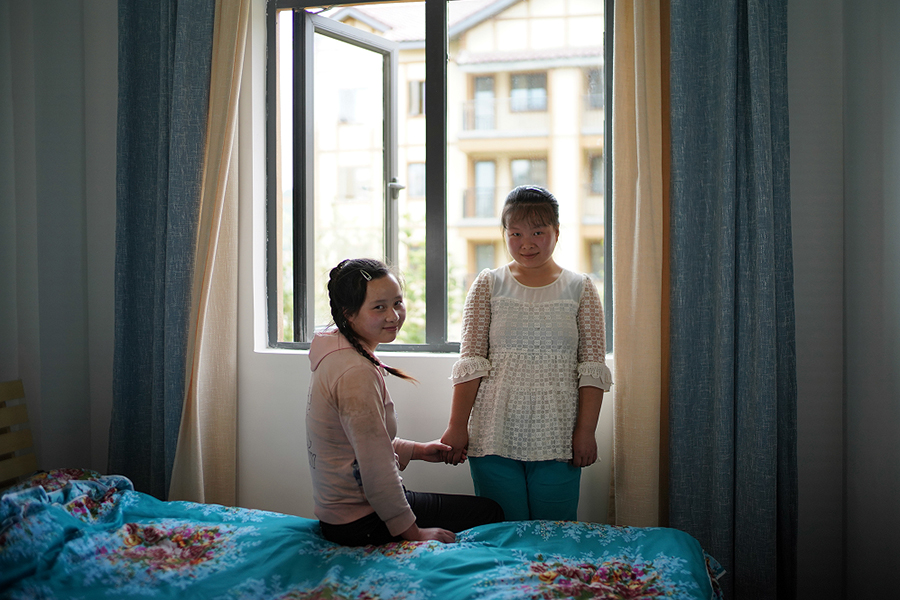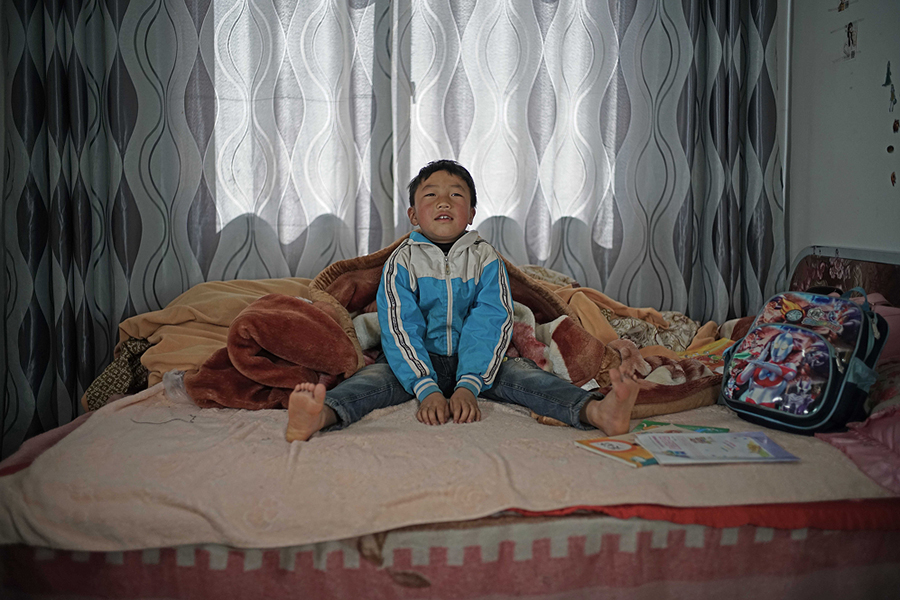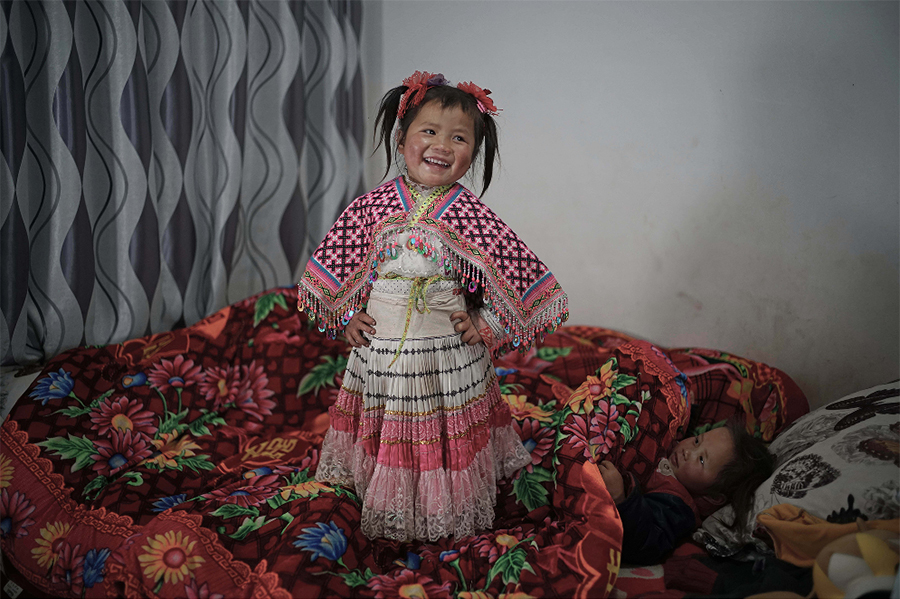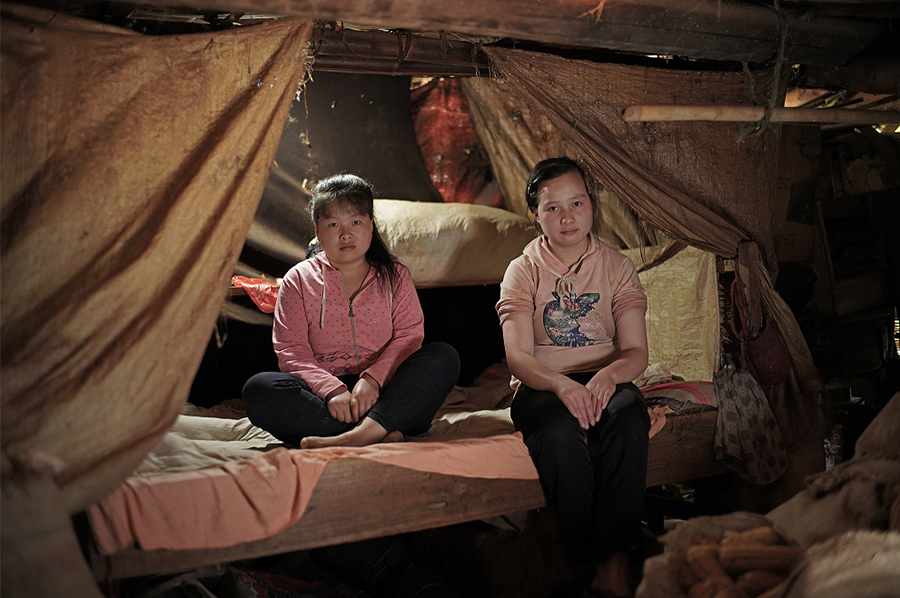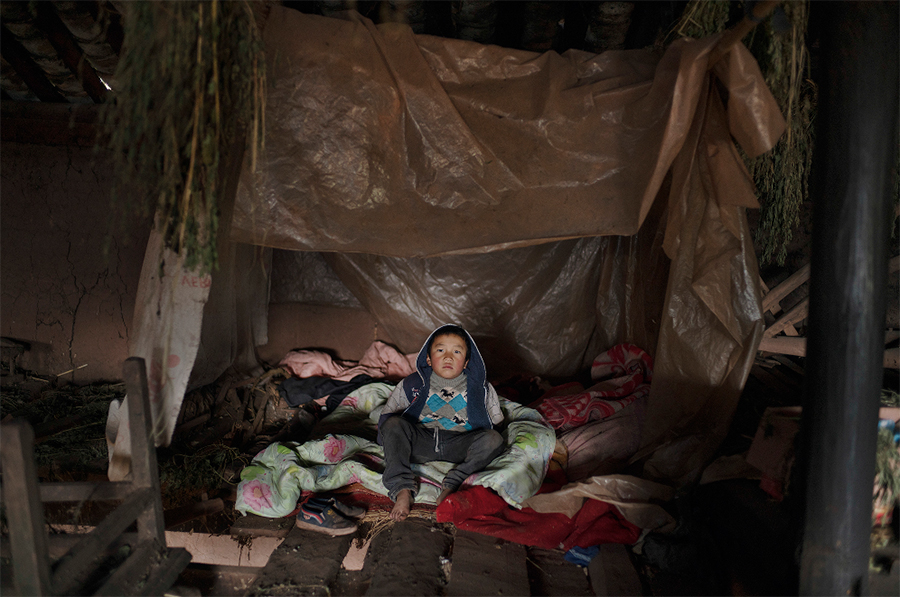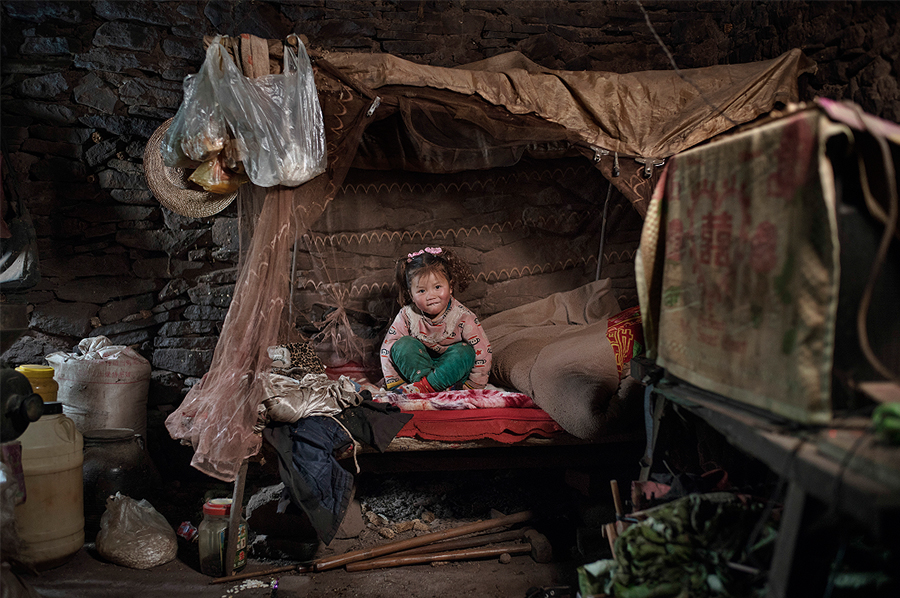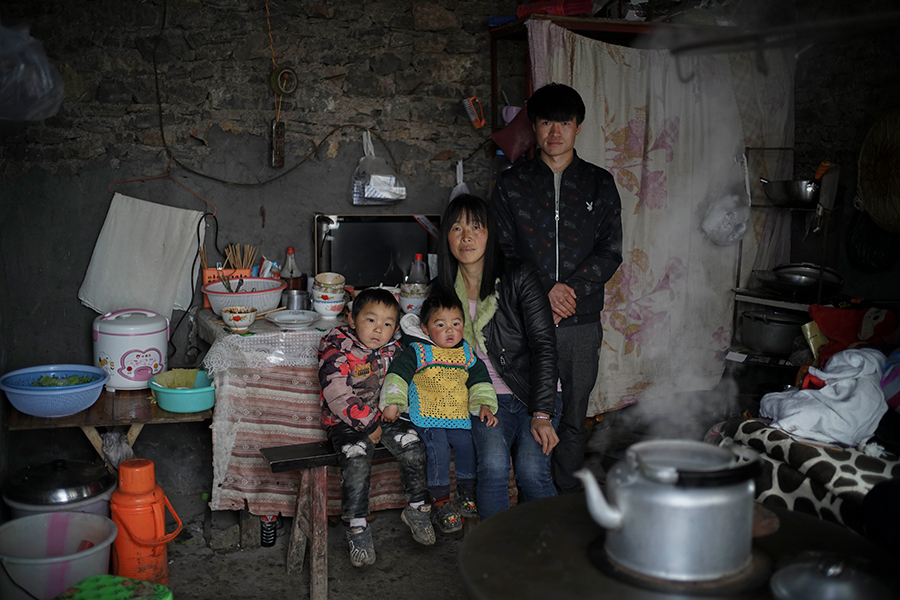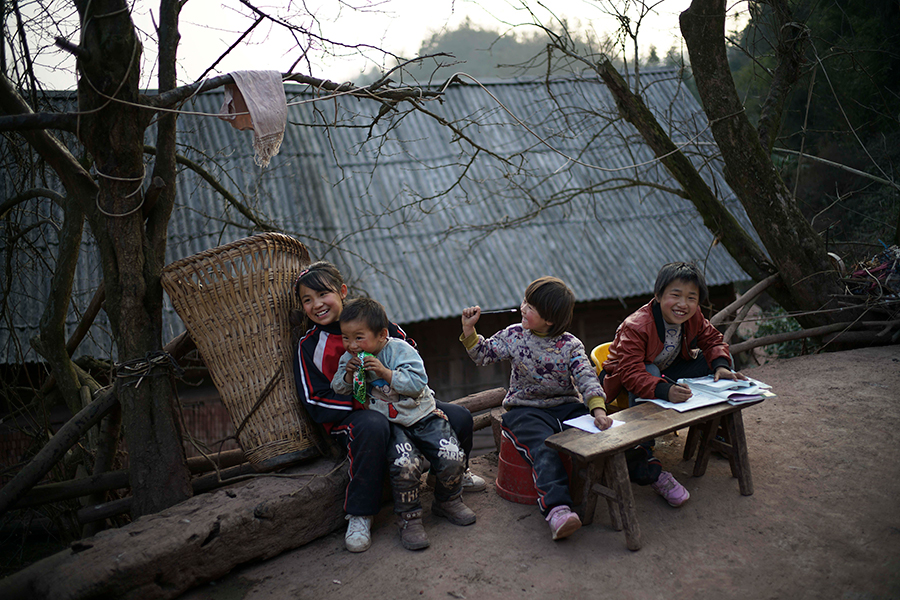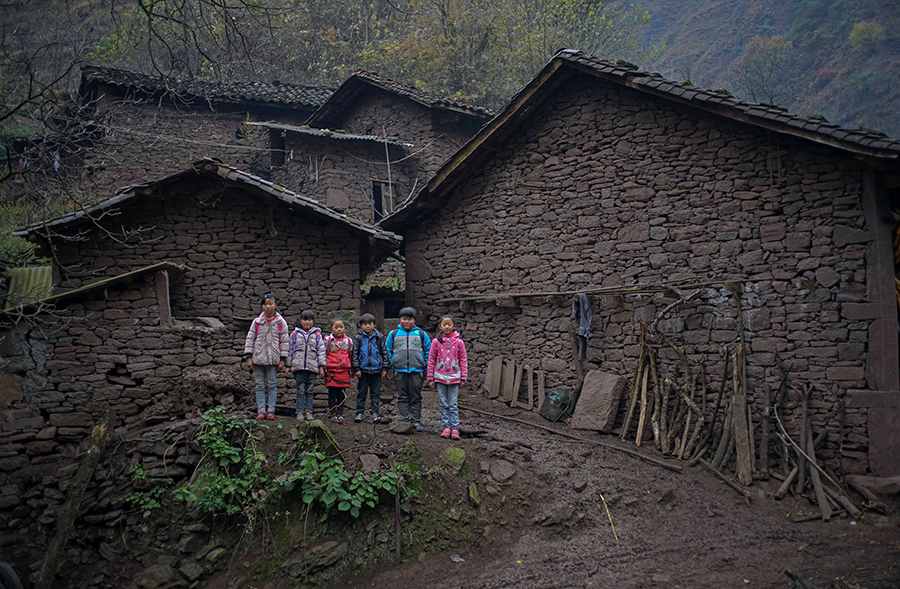Waiting for Mum at New Home
At an altitude of 2134 meters, Wushimu Village, which belongs to Haizijie Town, Qixingguan District, Bijie City, Guizhou Province, geographically features mountain and bank-side field. The land is barren and natural conditions are quite poor. The population there, dominated by the Han nationality, includes some minorities like Yi, Miao, Tujia, as well as Chuanqing people, an unrecognized ethnic group. Under its jurisdiction, there are 20 villagers groups, totaling 5995 people from 1242 households.
Li Fuchuan's family was one of the first relocation households, the rest of which reached up to 1416 households, that is, 5256 people in all. As is the case with many other villagers, this relocation has not only improved their living conditions, but is also a turning point in their lives.
-
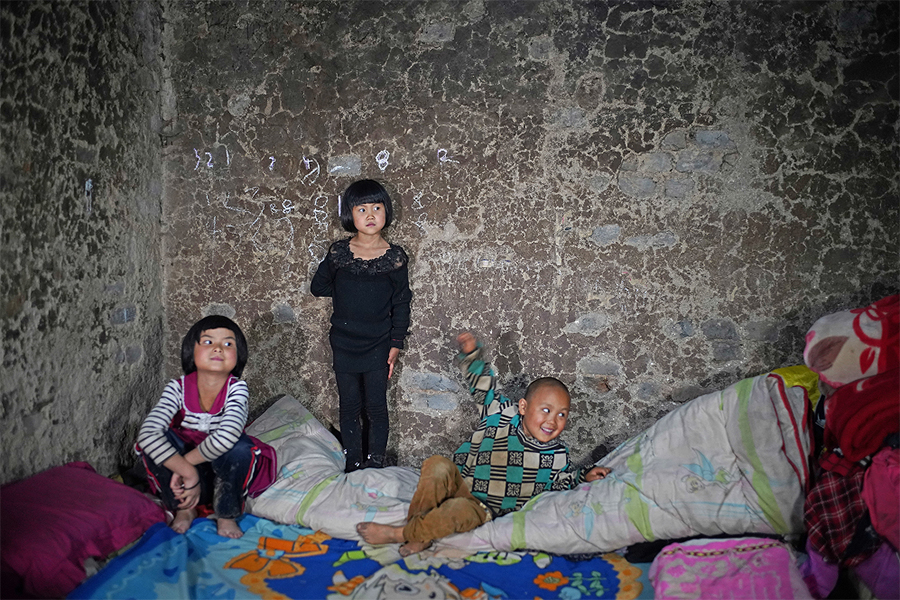
In the Wushimu Village, Haizijie Town, Qixingguan District, Bijie City, Guizhou Province, two dilapidated rooms, which covered no more than 30 square meters, sheltered Li Jiaxue (10 years old), her sister Li Jiayu (8 years old), their younger brother Li Chuangda (6 years old), their father Li Fuchuan and their grandmother Wu Daoying.
-

There were several large cracks in the house beam, almost disconnected in some places.
-
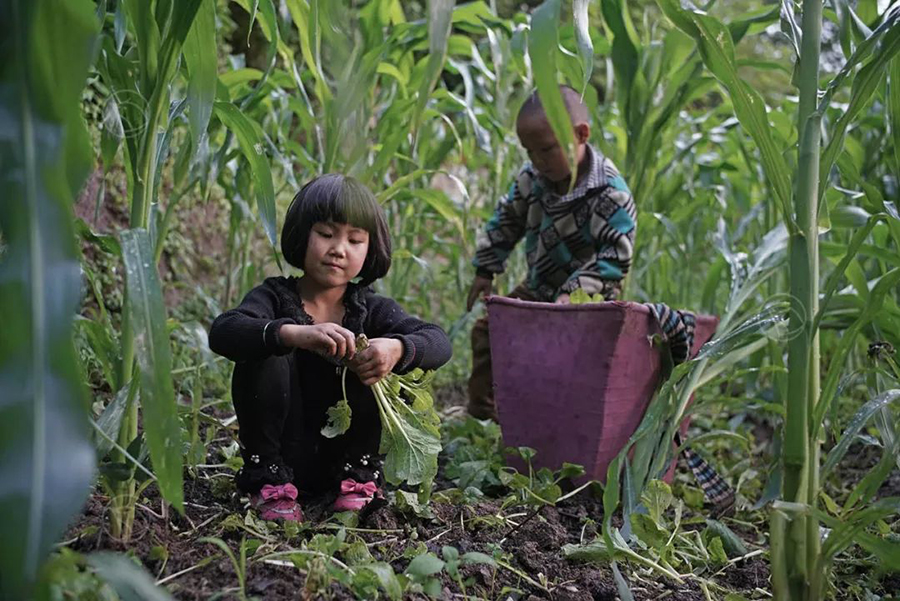
The family earned their living by growing corn and potatoes, and it was normal for the three children to help the adults with farm work. The father Li Fuchuan went out to work during the slack season, leaving the children to their grandmother. Their mother, unfortunately, left this place without a word six years ago, shortly after Li Chuangda was born.
-
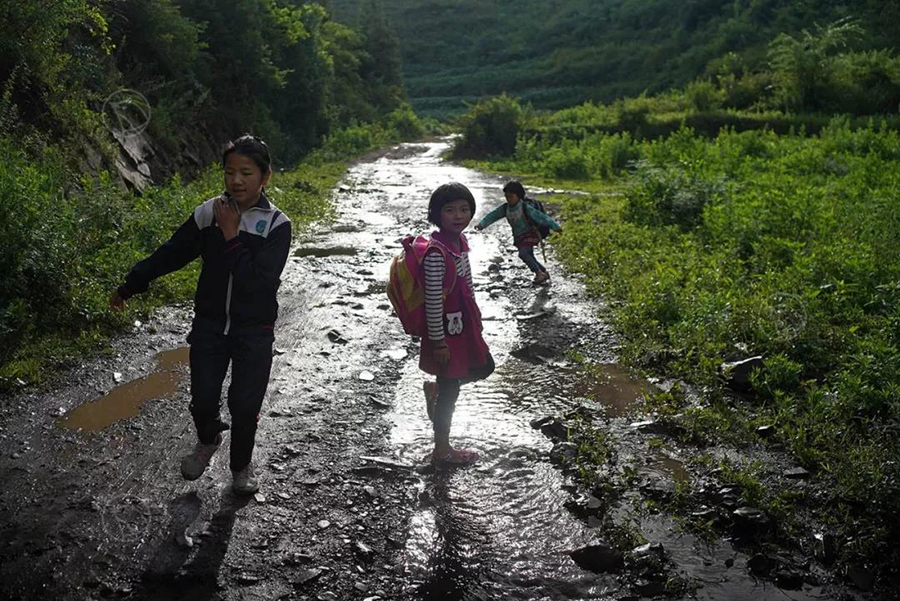
The home on the mountain and the school on the mountainside formed an altitude difference of 850 meters and a distance of 5 kilometers, of which 4 kilometers was a muddy dirt road. The road to school went downhill and it was about 40 minutes’ walk; 20 more minutes were needed on rainy days. In turn, the road back home was uphill, where they had to walk another half an hour.
-

At the end of 2017, Li Fuchuan’s family was included in the relocation households by the local government. In June 2018, the relocation was officially launched. The Li family eventually left the old house where they struggled for 21 years and moved to their new home of one hundred square meters in Bijie City.
-
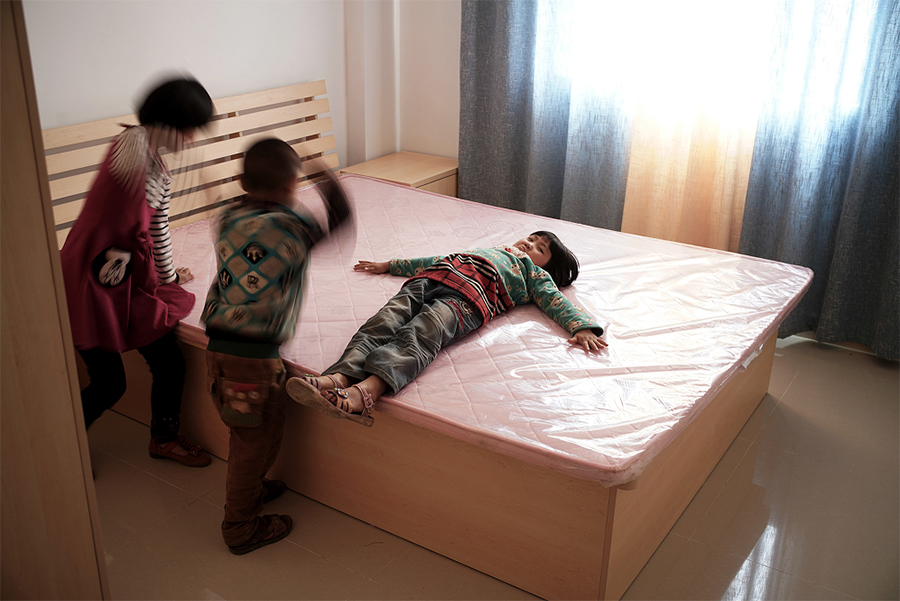
The three children finally have their own bedroom.
-

When the new semester begins, they will go to register at an elementary school within five minutes’ walk from home. Li Fuchuan has also found a new job near the resettlement area.
It is reported that for the poverty alleviation via relocation, Bijie City is going to build 50 new rural areas and 12 immigrant relocation communities to arrange for 221,800 people in total, who will all settle down before the end of May next year.
Poverty-oriented Photography rolled out by Sky3 Seed in collaboration with eBroker and 51VR to support Jie Chen together with his team in recording the poor families and villages as well as the individual and collective predicaments in the midst of social changes to push the society to change. In 2018, Jie Chen surveyed more than 100 families from 20 villages in Bijie of Guizhou, Liangshan of Sichuan, Nanjiang of Xinjiang, and Dingxi of Gansu, taking lots of pictures and documentary materials as well as doing a lot of fieldwork and written records. Relevant reports will be released from the end of 2018 to the beginning of 2019.
See more moments of Bijie, Guizhou:
